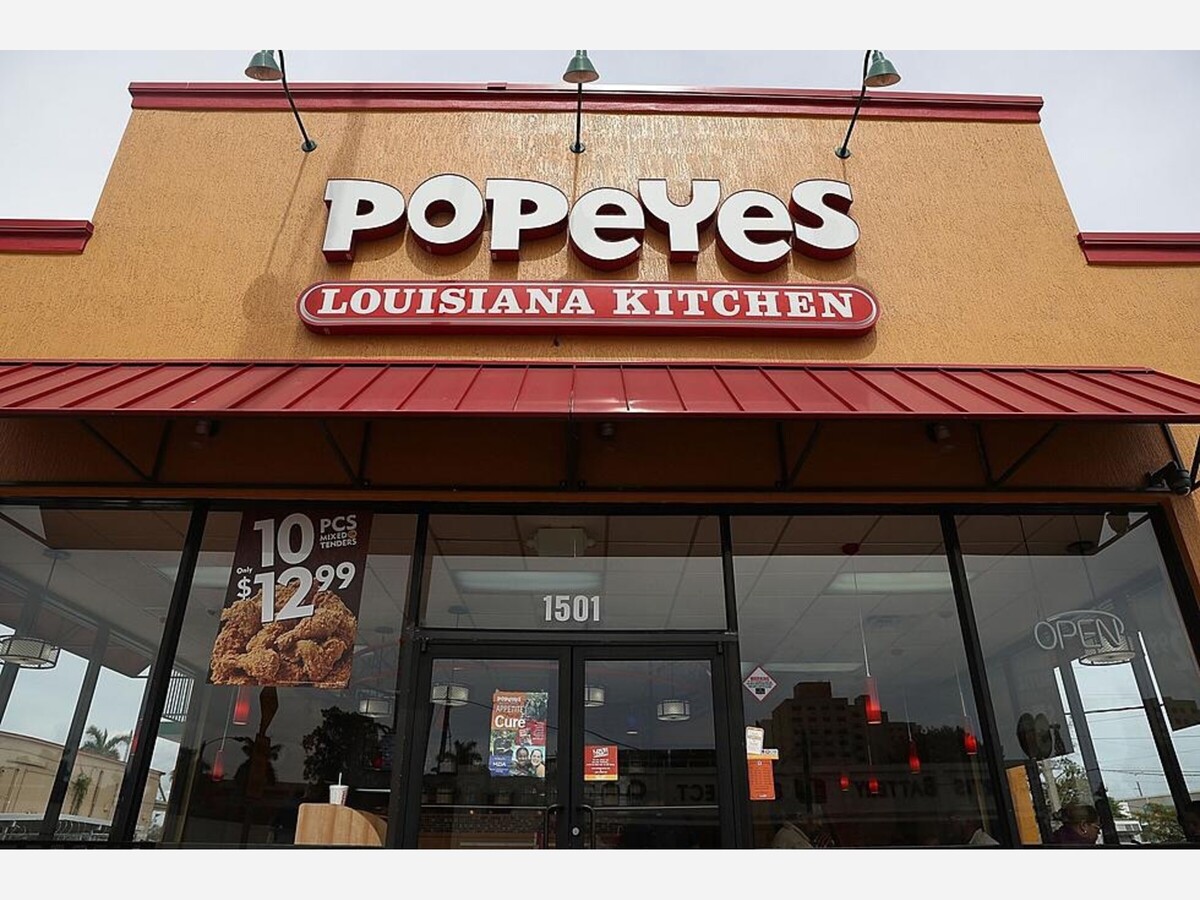Image

Title: Unraveling the Fast-Food Dilemma: Another Struggling Operator Files Chapter 11 Bankruptcy
In a surprising turn of events, yet another fast-food giant has succumbed to financial pressures, filing for Chapter 11 bankruptcy protection. The move reflects the harsh realities faced by the industry, grappling with evolving consumer preferences, economic challenges, and the lingering impacts of the global pandemic.
The struggling operator, which once boasted a prominent presence in the fast-food landscape, now finds itself navigating the complex waters of bankruptcy. While the specific reasons for the filing remain undisclosed, industry analysts point to a myriad of challenges faced by fast-food chains in recent years.
One of the primary factors contributing to the woes of fast-food operators is the ever-shifting consumer demand for healthier and more sustainable options. As health-conscious consumers increasingly seek alternatives, traditional fast-food establishments have struggled to adapt, leading to a decline in sales for many.
The COVID-19 pandemic has only intensified the sector's difficulties, with lockdowns, restrictions, and shifts in consumer behavior dramatically impacting the bottom line. The closures of dining areas, reliance on takeout and delivery, and supply chain disruptions have further exacerbated the challenges faced by these businesses.
Financial mismanagement and unsustainable business models have also played a role in the downfall of certain fast-food chains. High overhead costs, excessive debt, and an inability to innovate and meet changing market demands have left some operators on shaky ground.
The Chapter 11 bankruptcy filing provides the struggling fast-food operator with a lifeline, allowing for a reorganization of debts and operations to emerge as a leaner, more adaptable entity. This process aims to protect the company from creditors while providing an opportunity to implement necessary changes and regain financial stability.
However, the path to recovery is not guaranteed, and successful emergence from Chapter 11 requires a comprehensive restructuring plan. This includes reassessing business strategies, optimizing operations, and addressing the evolving needs of consumers to regain trust and loyalty.
As news of yet another fast-food giant filing for Chapter 11 bankruptcy reverberates through the industry, it serves as a stark reminder of the challenges faced by even the most established players. The evolving landscape of consumer preferences, coupled with external factors such as the global pandemic, underscores the imperative for adaptability and innovation in the fast-food sector. Only time will tell whether this latest Chapter 11 filing will mark a temporary setback or a significant turning point for the struggling operator.
A Popeye's franchisee has opted to file for Chapter 11 bankruptcy, a move influenced, in part, by the challenges faced during the COVID-19 pandemic. The impact on Popeye's was reportedly more severe compared to Burger King, as certain Popeye's locations lacked drive-through lanes. This operational limitation resulted in customers having to enter the restaurant to collect their orders, a task that became increasingly challenging and uncomfortable for patrons during a time when safety concerns were paramount. The bankruptcy filing sheds light on the intricate dynamics faced by fast-food establishments in adapting to evolving consumer preferences and the unforeseen hurdles presented by external factors like the pandemic.
RRG, Inc., the operator of 17 Popeye's locations in Georgia, has initiated the process of Chapter 11 bankruptcy protection, submitting the filing to the United States Bankruptcy Court for the Southern District of Georgia. Mark Rinna and Jane Rinna, the owners, cited the primary reason for this financial move as certain underperforming locations adversely affecting the overall financial health of the business. This development underscores the intricate challenges faced by franchise operators, emphasizing the need for strategic measures to address specific issues impacting their operations.
Facing the financial ramifications of failing locations, the debtor has decided to file for bankruptcy, seeking relief from the challenges posed by approximately three underperforming Popeye's restaurants. These struggling establishments have incurred significant financial losses, placing a considerable burden on the overall operations of the remaining restaurants under the debtor's management. The financial strain extends to falling behind on lease payments for the profitable locations, putting the debtor at risk of lease termination. To address these arrearages and stabilize the financial standing of the remaining establishments, the debtor deems Chapter 11 bankruptcy protection as a necessary step.
In their bankruptcy filing, the company explicitly states, "Debtor has fallen behind on lease payments of remaining profitable restaurants and needs to cure those arrearages to avoid lease termination." This reveals a critical need for the debtor to restructure its financial obligations and secure a path for curing outstanding payments to landlords, preventing the potential closure of otherwise viable locations.
Despite the challenging circumstances, the owners express their commitment to continuing operations during the Chapter 11 process. This decision reflects a determination to navigate the restructuring phase and emerge with a more sustainable and resilient business model. Operating through Chapter 11 allows the debtor to explore avenues for financial recovery, reorganize debts, and implement necessary changes without completely ceasing business activities.
Notably, this development marks the second Popeye's franchisee to file for bankruptcy within the past 12 months. The previous instance involved Premier Cajun Kings, which initiated Chapter 11 bankruptcy proceedings in March 2023 following the unfortunate passing of its owner. These consecutive filings underscore the complexities and challenges faced by franchise operators within the competitive and evolving landscape of the fast-food industry.